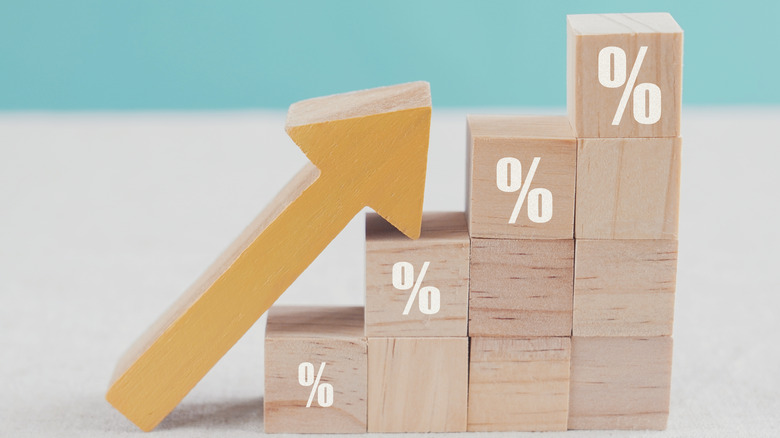How Mortgage Rates Are Keeping The Housing Market From Finding Long-Term Stability
The real estate market continues to be fascinating, though not a smooth ride for those considering buying or selling a home right now. Over the last few months, data has shown a significant amount of fluctuation as a variety of factors impact it, including economic concerns, inflation, and rising mortgage interest rates.
The National Association of Realtors shared that, in November of 2022, the number of homes sales took a sharp turn, dropping 7.7% from the previous month. More so, that figure dropped 35.4% from the same time the previous year. That's due in part to climbing interest rates, which makes it much harder for people to afford to buy a home. U.S. News & World Report data shows the average 30-year mortgage loan had its rate nearly double in the span of about a year. That increase in interest rates at or about 6% pushes homes out of reach for those seeking an affordable loan, but continued shifts are causing an even bigger concern.
Shifting interest rates hamper continued real estate market growth
Changing interest rates continue to limit the long-term viability of the housing market, though. Logan Mohtashami, who is HousingWire's lead analyst, reported on CNBC that conditions continue to flex. "Housing data started to improve as mortgage rates fell from 7.37% down to 6%," around the beginning of November. "So, we had about three months of positive forward looking data, and then within two weeks, mortgage rates just shot right back up," he explains.
The Federal Reserve has adjusted rates upward for several months to combat inflation, and while no actual reduction in the key lending rate occurred at that level, lenders began offering more affordable loans around November. Mohtashami continues, "The market cannot find any kind of stability long term as long as rates move up and down like this." With high and unstable mortgage rates, there's less confidence for those who want to buy a home. "Rates just shot right back up again. We're almost near 7%. So, the market is back to its 'how to deal with higher mortgage rates' [concern], and that simply has not worked in the past year."
There's also no rush for consumers to move
Are consumers actually looking to move, though? According to Mohtashami, there's "no rush to move out there" for several reasons. Consumers recognize that one of the best ways to lower some risk against inflation is to maintain a current mortgage. For example, a 30-year fixed-rate loan will have the same mortgage payment for 30 years. Even as people's wages increase year-over-year, that payment stays the same, creating a bit more money to use within the budget. People are comfortable where they are now and may not be rushing to move.
What about the increase in home sales that happened when rates came down in November? This has been perceived as an initial rebound, a promising look into the ability of the real estate market to overcome the previous year's drastic changes. That's not what Mohtashami believes, though. "All that did was stabilize the housing market." As rates continue to move, so will the market conditions. He also believes if rates fell to significantly lower levels, around 5.75% or lower, that could change consumer interests in making their move.


